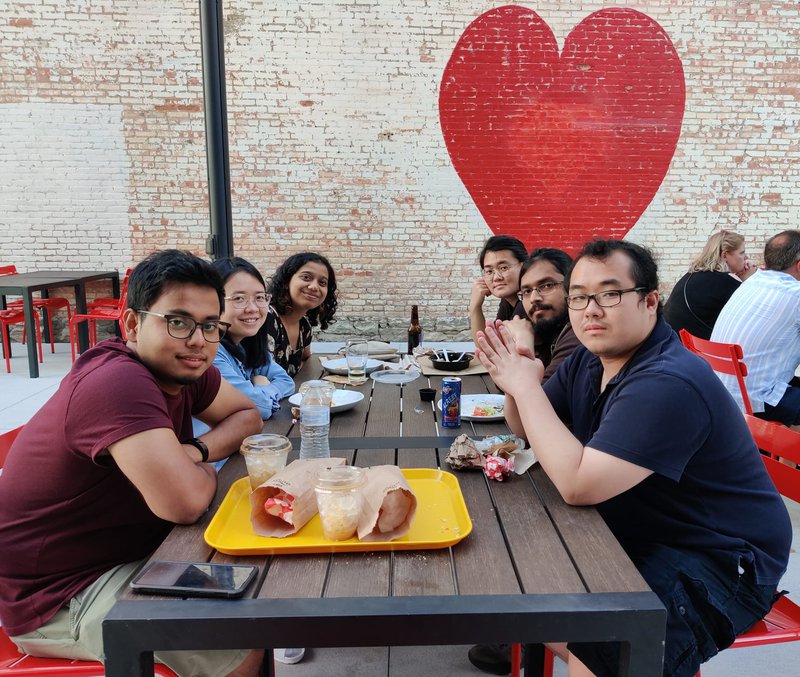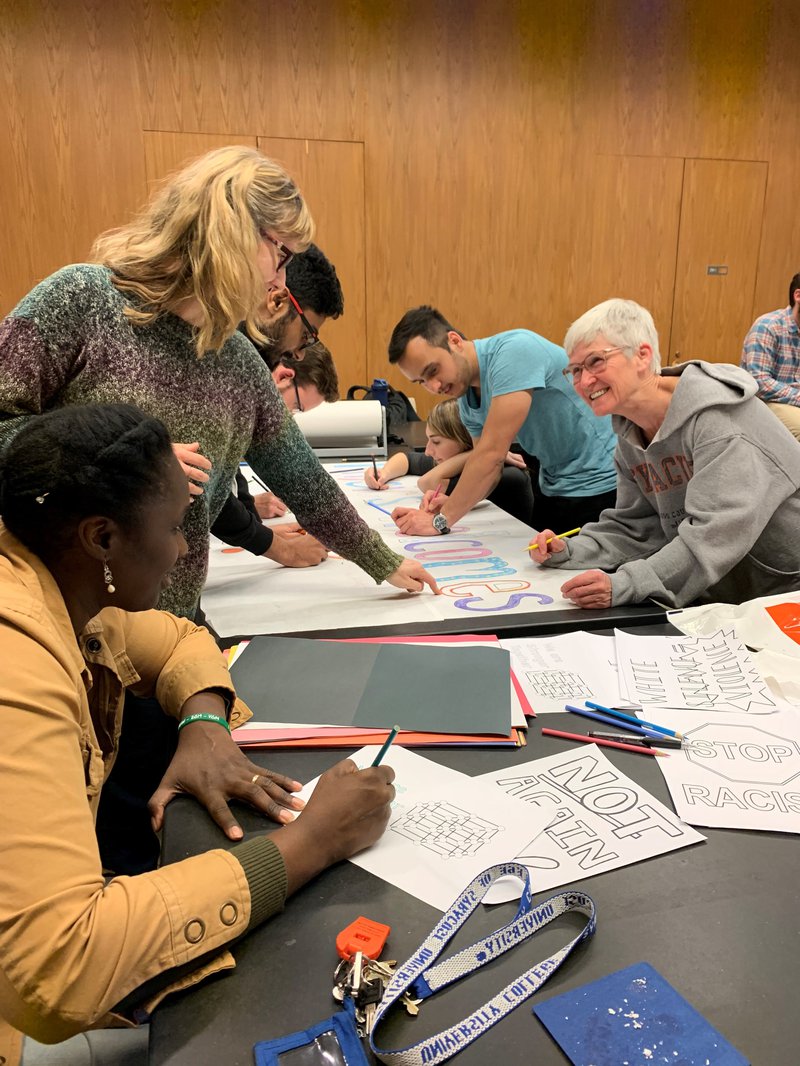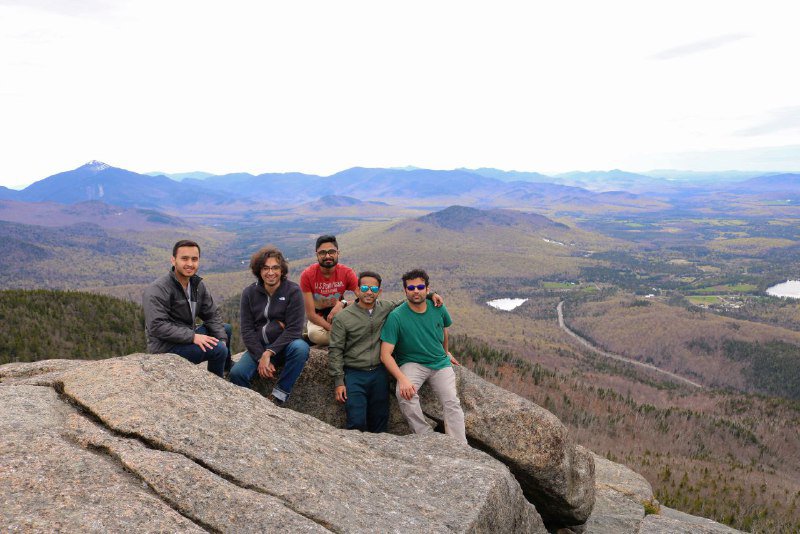written by Sarthak Gupta
“When I learned from my parents that we lost a few of our neighbors, who were like family to us as I grew up with their children, I didn’t know how to react, some part of me just couldn’t accept the truth. That incident left me with a fear of who is going to be next,” said first-year student Renita Saldanha while explaining how the second covid wave in India affected her emotional health. These are the emotions of fear and uncertainty that the Indian student community in the department were going through during the second Covid wave (March-May) in India.
COVID-19 has changed the world in more ways than anybody could have imagined. In the initial wave, India had relatively low reported cases, but when the second wave hit hard in early April, it changed that reality rapidly. India was the new epicenter of the pandemic. When the numbers and graphs became real people in their lives, many started panicking and were rushing to hospitals. With the total failure of medical infrastructure and lack of vaccines in the country more than 408,000 people died.
This fast-evolving pandemic, with 400,000 cases reported daily, affected Indian students in our department in a multitude of ways. Second-year student Arnab Pradhan said, “I did not get to see him. I wish I could have met him just one more time. I will miss hearing his voice on the phone every day, that's how my day used to start in Syracuse. It's been two months and I still find it hard to go to his room. I am yet to come to terms with the fact that he is not there.“ His grandfather passed away due to COVID-19 in early May. Other students who lost their loved ones also could not get to see them one last time because of travel restrictions.

International students in our department have packed up their whole life by putting thousands of miles between themselves and their friends, families, and home. They left it all behind to pursue the dream of doing a Ph.D. in Physics at Syracuse University. But with the scary situation in India, it affected their research as well. Prashali Chauhan, a third-year student, shared that due to the pandemic in India she experienced a lot of anxiety, which caused her general tiredness and unwillingness to do any work. It was mental torture and led her to a feeling of existential crisis. Fourth-year student, Chaitanya Afle, said: “The pandemic in India affected my work and productivity a lot, especially from mid-April to mid-May.” Another fourth-year student, Varun Srivastava mentioned that the pandemic has affected his ability to focus on work.
One feeling which was dominant among those interviewed was “helplessness.” Living, working, and starting a new life miles away from home has its challenges. With a pandemic in the home country, the pressure was multiplied many times over. Students voiced that the hardest thing was the constant worry that their family and friends might get exposed to the virus. With the country-wide shortage of hospital beds, oxygen, and medicine, their loved ones could suffer due to a lack of healthcare facilities. Another third-year student added that looking at the news enhanced the overwhelming feeling of helplessness. They talked daily to the family and friends for hours and told them to take every possible precaution; it was the only action one could have taken from so far away.
During these testing times, people in our department came together to support and comfort each other. For a lot of grad students talking to their peers helped. Chauhan said that, “It helped that I had a lot of Indian friends and people at least around me who seemed to be aware of what's going on in the rest of the world and it's not all better everywhere.” Another student mentioned that their class meets every weekend to play games together, which helped her to release stress and anxiety. She also mentioned that, “After speaking to people and knowing everyone is in the same boat and you have people to lean on in difficult times was just the thing I needed to put myself back on track and get going.”
In addition, to provide emotional and mental support, Pradhan said his group of friends in the department also helped him filing his taxes and covering his teaching commitments. Talking about the support from the department he said, “My professors are in constant touch with me, always offering their help and always having time to talk to me, they have been a big support.” A first-year student said that all their professors were flexible with the exams and submission deadlines, which helped a lot. First year Saldanha said, “Knowing that people care and they are there to help you out when in need means a lot when you are in an internal state of panic and just falling apart.”

Professor Jennifer Schwarz, the chairperson of equity, inclusivity, and diversity group, organized an “India listening session” in late April. The session saw great attendance from the Physics community. During the session, students from India voiced their worries about the pandemic and got to know that others have similar concerns. One of the thoughts that came out of the session was to donate money to various NGOs working to provide oxygen, beds, other medical and logistical support. Students later shared the links of the NGOs in India who are accepting international aid with the department.
When asked about the session, Indian students said that it was helpful. Afle, fourth year, said after the event, “I was able to get information on how I can donate to some non-profit organizations that were helping people who needed oxygen and other supplies.” Another student said, “The very fact that the department is concerned about the well-being of its grad students’ family and friends was comforting.” An additional student mentioned, “The fact that the department cares about us and is by our side is just so good to know.” Students also found peace by learning that they are not the only ones going through these emotions and that there is a community to which they can reach and share.

As of writing, about 20% of people in India are partially vaccinated. With increased testing and vaccination, we hope to defeat COVID-19 soon. We look forward to a healthier and COVID-19 free India in the near future.
We will also continue to count on members and friends in our physics department, our family here, away from our families.
